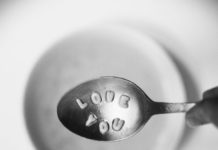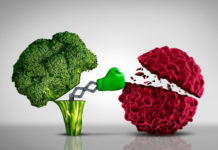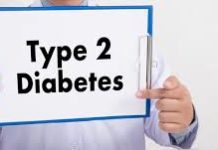
4 diet tips, including what to avoid
Contributor: Anna Taylor, MS, RD, LD, CDE
If you or someone you care about has recently been diagnosed with breast cancer, there will be questions. These may include: What should I eat?
During any cancer therapy, remember these four diet tips:
- Stay hydrated. Aim for at least 2 liters to 3 liters of fluid per day — about 66 ounces to 99 ounces— mostly from caffeine-free fluids.
- Get enough calories. Forget the calculator — the best way to know whether you are eating enough calories for energy is to weigh yourself once or twice a week. If your weight is trending down week after week, speak with a dietitian to make a plan. Remember to eat regularly throughout the day. Small meals five to six times a day typically work well.
- Focus on nutrients and get the most nutrients per calorie. Choose foods from the food groups — things like fruits, vegetables, grains, beans, nuts, seeds, meats/eggs and dairy products. A balanced diet helps ensure you are getting the nutrients you need to keep your body strong.
- Don’t forget protein. Protein helps maintain lean body mass/muscle. Protein is found in meat, poultry, fish, seafood, eggs, beans, lentils, nuts, seeds, soy and dairy products. Smaller amounts of proteins are found in vegetables and whole grains.
If you don’t have nutrition-related side effects from your cancer treatment that limit your ability to eat and/or digest food, you can follow a generally healthy diet that includes:
Fruits and vegetables: Five or more servings a day
Fruits and vegetables contain antioxidant and anti-estrogen properties. Cruciferous vegetables such as broccoli, cauliflower, kale, cabbage and Brussels sprouts are especially good to include and are rich in phytochemicals.
Whole grains: 25 grams to 30 grams of fiber daily
Whole grains are unprocessed foods that are high in complex carbohydrates, fiber, phytochemicals as well as vitamins and minerals. A study by researchers at Soochow University in Suzhou, China, found that high fiber intakes may have a positive effect by altering hormonal actions of breast cancer and other hormone-dependent cancers.
Nutritious fats: Less than 30 percent of total daily calories
Some studies, including a study by researchers at the Karolinska Institute in Stockholm, Sweden, have suggested that the type of fat you consume may initiate the development of breast cancer. Limit your intake of saturated fat such as beef, lamb, organ meats, butter, cream, etc. and decrease your intake of foods containing trans fats, which also are called hydrogenated oils. Increase your intake of fatty fish like salmon, tuna, herring, and sardines to two to three times every week.
Lean protein — and soy, too
For good protein sources, increase your intake of poultry, fish, and legumes such as beans and lentils. Minimize your intake of cured, pickled and smoked foods. Soy in moderate amounts, which means one to two servings/day of whole soy foods, such as tofu, edamame and soy milk, also can be included. Studies, including research reported in the American Institute for Cancer Research, show that animals metabolize soy differently than humans. Not only is soy safe in moderate amounts, but research shows that soy contains isoflavones, a phytonutrient with anti-cancer properties. Up to three servings of whole soy foods per day does not increase a breast cancer survivor’s risk of recurrence or death.
Alcohol in moderation, if at all
Drinking alcohol is a known risk factor for breast cancer. A large, observational study of 105,986 women suggested that drinking three glasses of wine or more per week throughout life increases a woman’s risk of breast cancer by a small but significant percentage. The study saw a 15 percent increased risk of breast cancer when women drank an average of three to six drinks per week, compared to women who did not drink. Try to avoid intake of alcoholic beverages when possible.
After treatment, maintain a healthy weight
Obese women have higher levels of estrogen circulating in their bodies than women who are in their ideal body weight range.
Many studies including a study conducted by researchers from the Iranian Institute for Health Sciences Research in Tehran, Iran, have demonstrated an association between body mass size and breast cancer in post-menopausal women.
Weight reduction should be accomplished through a healthy diet and regular exercise once treatment is completed. Weight loss during treatment is not typically encouraged, as this is often associated with undesired muscle loss, leading to fatigue, a suppressed immune system, and a slower healing process.
Allow your body the nutrients it needs to fight cancer; once treatment is done, consider meeting with a dietitian for individualized recommendations to decrease recurrence risk and support a healthy weight.
Potential cancer fighters in foods
Phytonutrients support human health and are found in plant-based foods, including fruits, vegetables, beans, and grains. Below, find common foods that contain important phytochemicals.
| Phytochemical | Food Source |
| Carotenoids | Dark yellow/orange/green vegetables and fruits |
| Isothiocyanates | Mustard, horseradish, cruciferous vegetables |
| Phenolic compounds | Garlic, green tea, soybeans, cereal grains, cruciferous vegetables, flaxseed |
| Flavanoids | Most fruits and vegetables |
| Organo-sulfides | Garlic, onion, leeks, shallots, cruciferous vegetables |
| Isoflavones | Soybeans, legumes, flax seed |
| Indoles | Cruciferous vegetables: broccoli, cauliflower, kale, cabbage, Brussels sprouts |
If you have side effects
If you experience nausea, your nutritionist may recommend that you try to eat more foods that are cool or at room temperature, because they don’t have a strong odor. Your nutritionist also may advise you to eat lower-fat food since fats take longer to digest.
Don’t skip meals entirely if you have nausea, since an empty stomach can make nausea worse. Instead, focus on small bites of food throughout the day. Avoid strong flavors. Feel free to incorporate ginger root into your recipes, as this can help settle a nauseated stomach.
If constipation becomes an issue, your nutritionist may encourage you to eat fiber-rich foods and increase your fluid intake. Low-intensity walking and warm beverages also can help encourage regular bowel movements.
To combat fatigue, choose high-protein snacks and small frequent meals rather than large meals. People often experience more fatigue when they are not eating well, or when they are losing weight during treatment.
If experiencing any side effect that affects your ability to eat regularly, ask your care team if you can meet with a dietitian to review individualized nutrition recommendations.






























